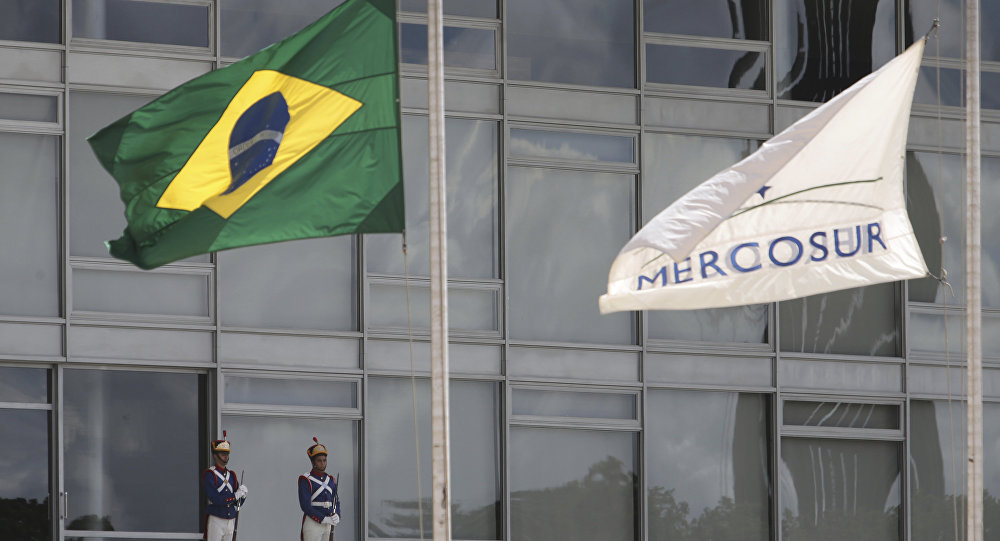RIO DE JANEIRO, BRAZIL – With the presence of president Jair Bolsonaro, Brazil will be assuming the rotating interim presidency of Mercosur on July 17th in Santa Fe, Argentina, during a meeting of the bloc’s heads of state.

Bolsonaro’s attendance at the 54th Meeting of the Mercosur Council and associated countries will be preceded by several meetings between government officials and diplomats, to discuss measures to simplify and cut red tape in trade and institutional relations between the bloc’s member nations and other countries.
Celebration
The Brazilian delegation will be led by Chancellor Ernesto Araújo, who will take part in the preparatory meetings for the summit on July 16th, to commemorate the signing of the Mercosur agreement with the European Union (EU).
In Santa Fe, preparatory meetings will also be held on July 14th and 15th, including a meeting of the Mercosur Trade Commission and a discussion on the functioning of a common market.
As president of Mercosur, the Brazilian delegation intends to strengthen the measures taken by Argentina, the current interim leader of the bloc, which successfully presided over the negotiations with the European Union.
Simplification
There are currently more than 200 bodies, councils and commissions in Mercosur, a source of pressure on the budgets of Brazil, Paraguay, Argentina and Uruguay, the countries comprising the trading bloc.
Under the interim presidency of Brazil, Mercosur members will review the functioning and purpose of each body or council, which will be extinguished if there is evidence that they are of no practical use.
Common External Tariff
According to members of the Brazilian delegation, Brazil will work to reduce the Common External Tariffs (TECs), which are used in the trading of products between members of the bloc. The TECs were introduced at the outset of Mercosur to protect each country’s industry and thus prevent the monopoly of production. Over time, however, the TECs contributed to Mercosur’s becoming a bloc of countries closed and averse to world trade.
The signing of the agreement with the EU will allow for a reduction in these tariffs so that trade in the region eventually equals the conditions of the European bloc, according to the Brazilian delegation.

